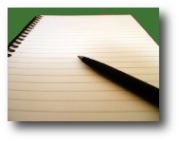Written by Gary Ewer, from “The Essential Secrets of Songwriting” website
Follow Gary on Twitter
Many of you know that I often compare writing a song with going for a walk. Songs are like journeys, and we take listeners on that journey with us. But without a plan, that journey can leave the listener feeling confused and lost. A plan not only gives the audience a sense of form, but makes it more likely you’ll actually finish writing the song.
 Let me expand a bit on the “walk” analogy: If your purpose in going for a walk is simply to get a little fresh air, it doesn’t really matter where you go or what you do. But let’s say that A&E decided that they wanted to video-record your walk and present it to an international audience. Suddenly, you’d be coming up with a plan. You’d be making certain that in your walk you encounter interesting places, and see interesting things. You’d want to be sure that once someone has seen the video, they think that it’s been worth the watch.
Let me expand a bit on the “walk” analogy: If your purpose in going for a walk is simply to get a little fresh air, it doesn’t really matter where you go or what you do. But let’s say that A&E decided that they wanted to video-record your walk and present it to an international audience. Suddenly, you’d be coming up with a plan. You’d be making certain that in your walk you encounter interesting places, and see interesting things. You’d want to be sure that once someone has seen the video, they think that it’s been worth the watch.
Your song, if you choose to market it, is no different. Through your songwriting, you are potentially tapping into an international market. So if this is the case, why do so many songwriters sit down to write a song with no real plan in mind. It’s as if they’re video-recording a meandering walk with no real purpose and no real plan. How can y ou expect someone to be interested in that.
Moreover, writing a song that has no starting plan probably means that you won’t finish it. You’ll likely get a verse or two into it before you lose focus, unable to figure out where to go from there.
If I just described your latest songwriting attemps, the solution is relatively simple: you must develop a plan for your song. You’ll need to get a sense of the lyric you’re going to set, but before you actually start writing, you must answer these five questions:
- What is the basic form of my song? (ABABCB? AAA? ABAB?)
- What is the basic instrumental plan for the song (i.e., how does the instrumental treatment unfold? Does it start small and build? Does it establish a high energy level and maintain it?)
- What is the melody for this song, and does it modify over time? Is the chorus melody related to the verse melody? What chords do I plan to use to harmonize this melody?
- Are there solos or instrumental breaks?
- What have I done to ensure that there is a sense of compositional development throughout the song that takes the listener from beginning to end?
Having this sort of plan in mind doesn’t mean you can’t change it as you go. But without a preliminary plan, your song may wind up simply wandering around with nothing to keep a listener interested.
When I compose music, I often start with a blank piece of paper, and draw lines across the page that represent the basic energy levels throughout the piece, and instrumental and rhythmic treatment. The “busier” the song, the higher the line. I use that graph when I’m done as a basic plan, and THEN I start writing.
A plan like this will make it far more likely that you’ll finish what you’ve started out trying to do. Without a plan, good songs are just lucky accidents. Don’t leave it to chance; use a plan to take control of your songwriting process.
 “The Essential Secrets of Songwriting” shows you how to write great songs. It’s just one of a suite of 6 songwriting e-books written by Gary Ewer. (His newest e-book, “The Essential Secrets of Songwriting- Chord Progression Formulas” is being offered for free when you purchase any other of his songwriting e-books.) Let these six e-books show you every aspect of how to write great songs! Read more..
“The Essential Secrets of Songwriting” shows you how to write great songs. It’s just one of a suite of 6 songwriting e-books written by Gary Ewer. (His newest e-book, “The Essential Secrets of Songwriting- Chord Progression Formulas” is being offered for free when you purchase any other of his songwriting e-books.) Let these six e-books show you every aspect of how to write great songs! Read more..










Thank you for such a nice post.